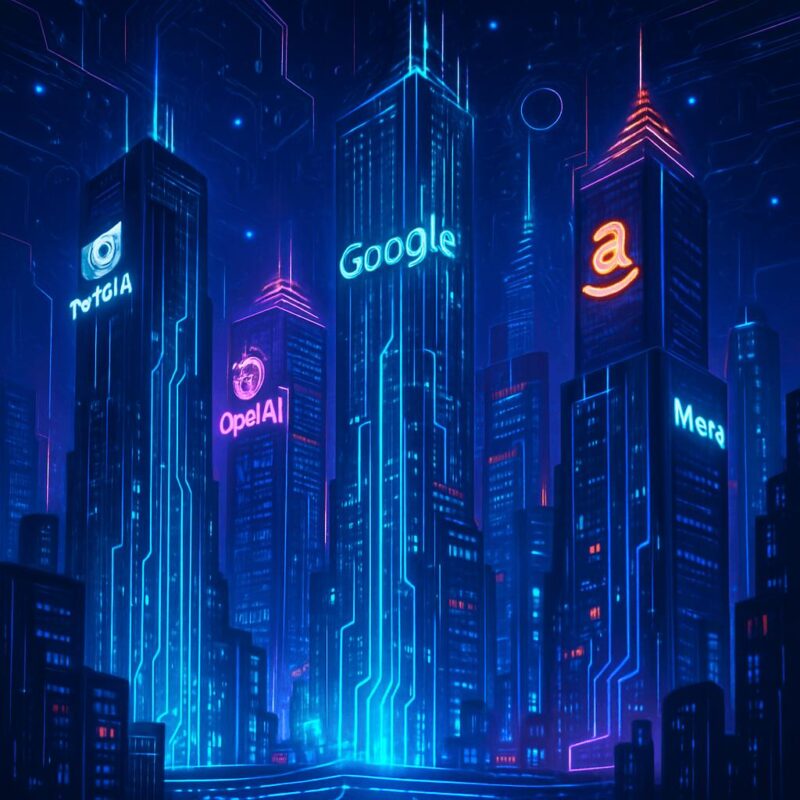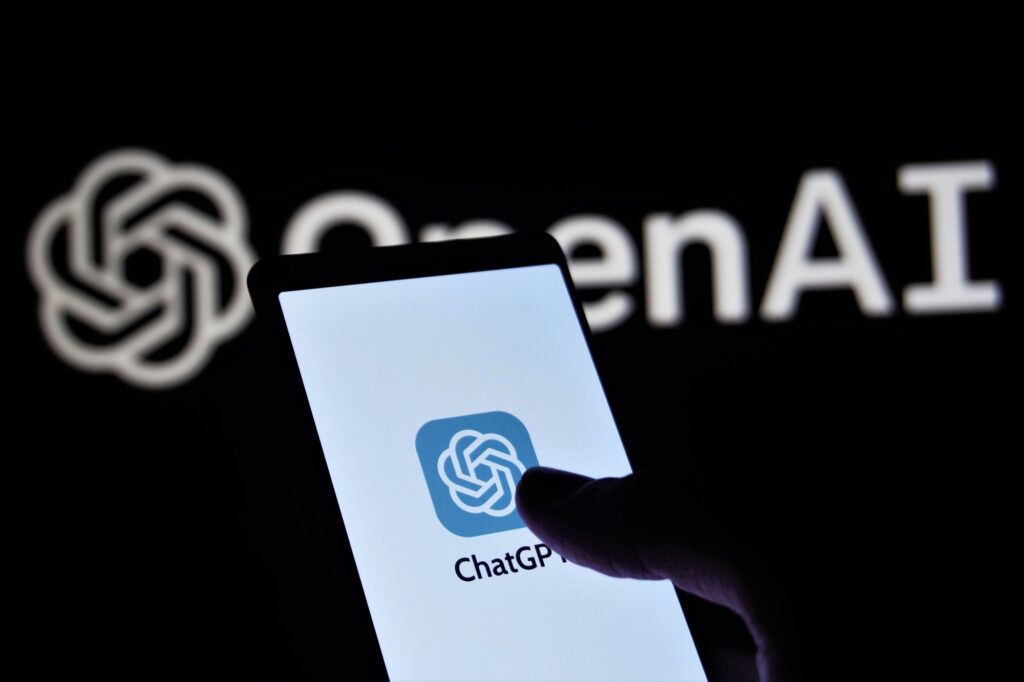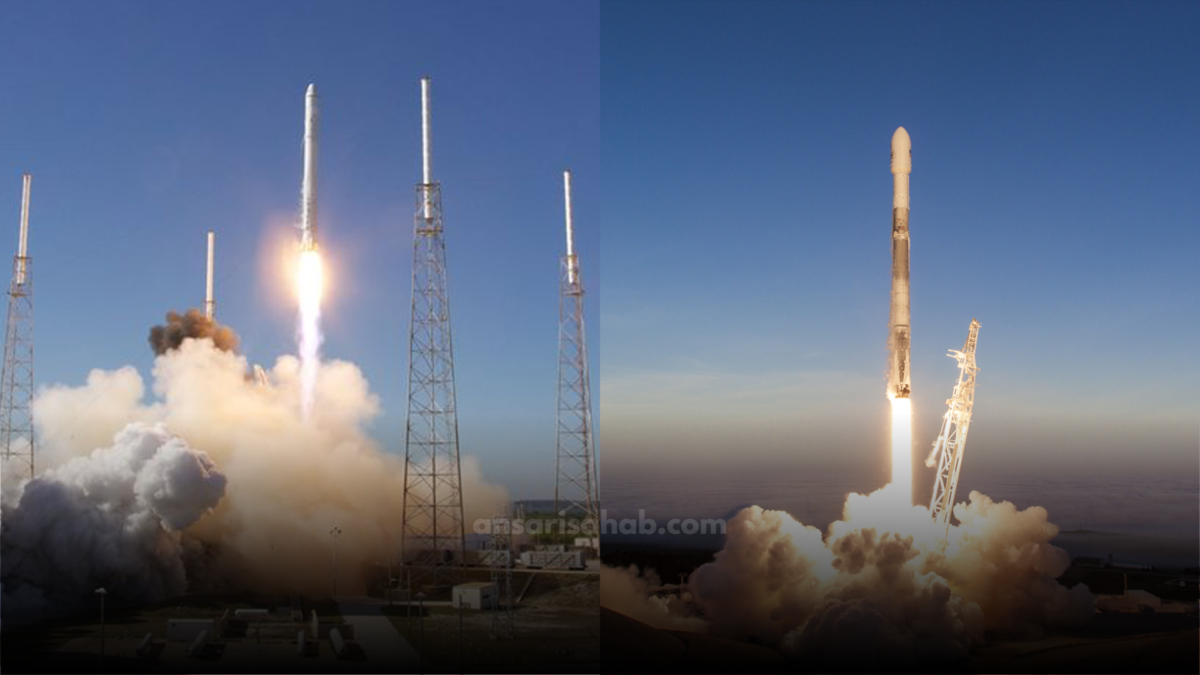Artificial Intelligence is no longer a distant dream; in 2025, it drives everything from healthcare and creativity to finance and defense. The growth and evolution of AI companies reflect not only technological breakthroughs but also the integration of AI into our daily lives and business operations. If you’re looking for a definitive, SEO-optimized list of the “Top AI companies 2025”, here are the ten leaders, explained with their history, innovations, and why they’re at the forefront.
1. OpenAI
Founded: 2015
HQ: San Francisco, California
OpenAI has become synonymous with cutting-edge generative AI. Widely recognized for launching the GPT series (now at GPT-5) and DALL·E, OpenAI has democratized natural language processing and image generation across industries. Initially started as a nonprofit, its mission to develop beneficial artificial general intelligence (AGI) saw it pivot to a “capped-profit” model while collaborating with Microsoft for scale. OpenAI’s history is marked by its commitment to safety and transparency. In 2025, OpenAI powers applications in education, enterprise, and creativity, holding a leading spot in the AI transformation.
2. Microsoft
Founded: 1975
HQ: Redmond, Washington
Microsoft’s AI journey began long before the current boom, with early investments in research through Microsoft Research Labs. The company’s deep partnership with OpenAI (multi-billion dollar investment), the rollout of Microsoft 365 Copilot, and Azure AI services have ensured AI is seamlessly embedded into productivity tools, cloud, and developer ecosystems. In 2025, Microsoft stands out for its massive $80B investment in AI-enabled data centers, global cloud reach, and responsible, scalable AI deployments in business, industry, and public sector applications.
3. Nvidia
Founded: 1993
HQ: Santa Clara, California
Nvidia started as a graphics chip company and is now the backbone of global AI infrastructure. With over 90% of worldwide AI workloads powered by its GPUs, Nvidia’s history includes every major wave of AI advances—powering everything from autonomous vehicles and climate science to generative AI. Its Project DIGITS and the Grace Blackwell superchip exemplify Nvidia’s commitment to democratizing AI, making supercomputing power accessible to researchers and developers everywhere. Nvidia’s collaborations span automotive, robotics, and cloud giants.
4. Alphabet (Google)
Founded: 1998
HQ: Mountain View, California
Alphabet, via Google and DeepMind, has a storied AI legacy. After acquiring DeepMind in 2014, Alphabet made landmark contributions—from AlphaGo and protein-folding breakthroughs to Gemini, its leading AI language model. Google products—Search, Gmail, Translate, and Cloud—are now AI-powered. Their huge $75B investment in AI infrastructure for 2025 demonstrates their seriousness, while projects like Waymo and Verily highlight real-world impact in autonomous mobility and medical research. Alphabet’s ethical leadership in AI is widely recognized, focusing on responsible and transparent AI deployment.
5. Meta
Founded: 2004 (as Facebook)
HQ: Menlo Park, California
Meta, under Mark Zuckerberg, is redefining social connectivity with Llama 4 and Meta AI—aiming for a billion users by year’s end. With generative AI infused into WhatsApp, Instagram, and Facebook, Meta not only shapes digital communication but also invests $65B in AI infrastructure in 2025. Projects like AI Studio and significant data center scaling mark Meta as a leader in conversational AI and social graph intelligence. Its responsible AI development principles and integration with hardware (VR/AR) set industry standards.
6. Tesla
Founded: 2003
HQ: Austin, Texas
Tesla, led by Elon Musk, began as an EV company but is now revolutionizing autonomous driving and robotics using AI. The Dojo supercomputer propels Tesla’s Full Self-Driving advances and ambitions for general-purpose humanoid robots (Teslabots). Tesla’s real-world data from millions of vehicles enables continuous AI learning and deployment—making it the de facto leader in automotive and real-world AI applications in 2025.
7. Anthropic
Founded: 2021
HQ: San Francisco, California
Founded by ex-OpenAI researchers, Anthropic has rapidly garnered acclaim for its safety-focused, large language models (Claude series). Anthropic prioritizes AI alignment, transparency, and robust AI systems that can be trusted in sensitive contexts. Its innovative “Constitutional AI” approach and partnerships with enterprises make it a key OpenAI competitor, especially as organizations seek ethically-grounded AI solutions.
8. Databricks
Founded: 2013
HQ: San Francisco, California
Databricks pioneered the “lakehouse architecture,” blending data lakes and warehouses for AI analytics. Its Mosaic AI platform powers generative and predictive AI at massive scale, serving over 10,000 enterprise customers. CEO Ali Ghodsi’s vision has made Databricks essential infrastructure for modern AI, enabling companies to build, deploy, and manage AI models efficiently. Databricks’s influence spans finance, healthcare, and industrial sectors.
9. Palantir Technologies
Founded: 2003
HQ: Denver, Colorado
Initially focused on government analytics, Palantir’s AI platform (AIP) integrates LLMs and powerful data pipelines for real-time decision making. Palantir technology underpins NATO defense, healthcare (NHS England), and finance, demonstrating AI’s capacity to solve complex, mission-critical challenges. Its granular data controls and explainable AI make it the partner of choice for highly regulated industries.
10. ByteDance
Founded: 2012
HQ: Beijing, China
Best known for TikTok, ByteDance leverages world-leading AI recommenders for content personalization and engagement. But the company’s AI reach goes beyond entertainment: it advances NLP, computer vision, and enterprise AI models for global markets. ByteDance’s AI research arm has made significant open-source contributions, and its expansion into productivity tools and education platforms signals the globalization of AI innovation.
Honorable Mentions
- IBM: Decades of AI leadership via Watson and ongoing innovation in business AI and cloud.
- xAI: Elon Musk’s ambitious new venture, merging Grok LLMs with real-time social data and advanced supercomputing.
- Adobe, Oracle, AWS: All major cloud providers and creative software firms integrating generative AI and ML across their services, catalyzing digital transformation.
Why These Companies Dominate in 2025
These leaders combine deep technical expertise with scalable solutions and open innovation. They shape global markets and deeply impact other industries through strategic partnerships, massive infrastructure investments, and ethical AI development:
- Innovation: Developing large models, supercomputers (Nvidia, Tesla), and transformative applications (OpenAI, Microsoft).
- Scale: Serving billions of users or handling enterprise-grade deployments (Meta, Google, Databricks).
- Cross-industry impact: From military tech (Palantir) and life sciences (Alphabet/DeepMind) to entertainment (ByteDance) and industrial automation (Nvidia, Tesla).
- Responsibility: Strong focus on AI safety, explainability, and ethical considerations (Anthropic, Microsoft, OpenAI).
Conclusion
If you’re positioning content for “Top AI companies 2025”, highlight those blending breakthrough research, responsible deployment, and unmatched real-world outcomes. This list represents not only the state-of-the-art in AI but also the ongoing transformation of how we live, work, and interact in a world powered by intelligent technology.









